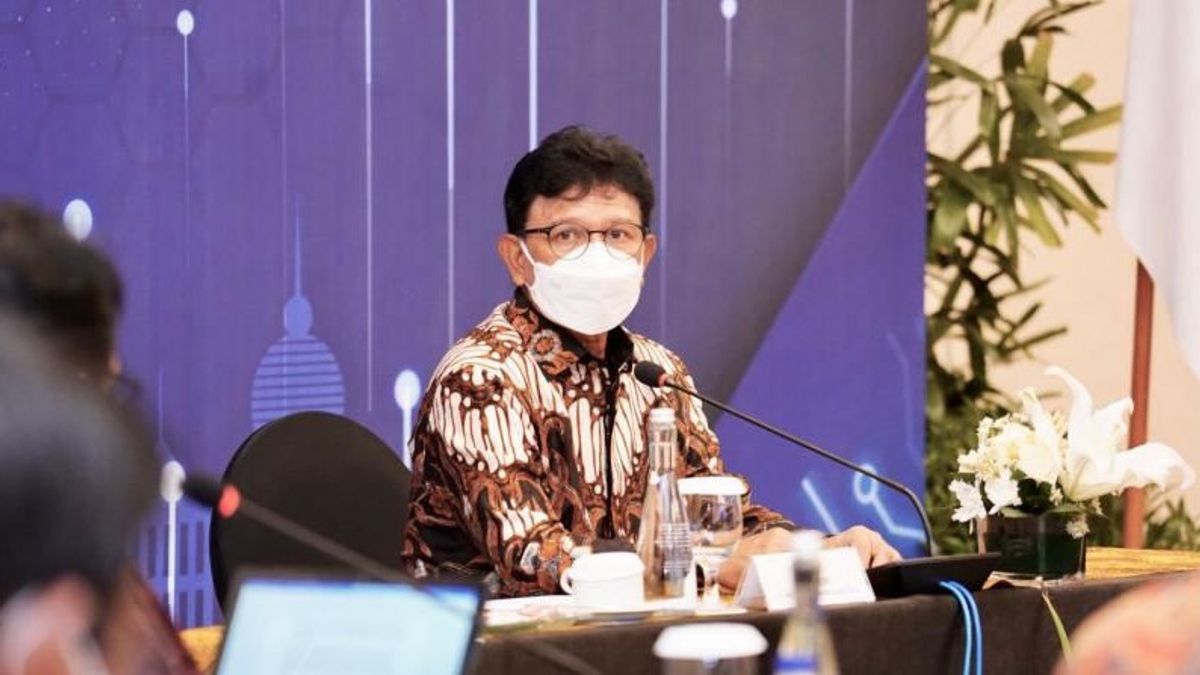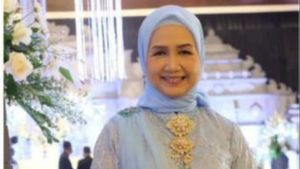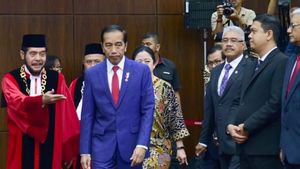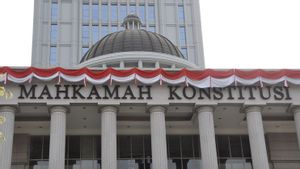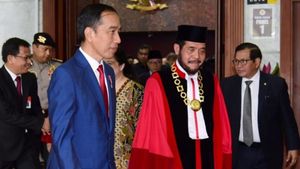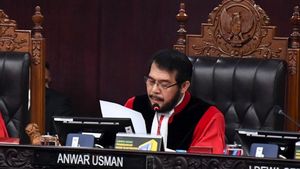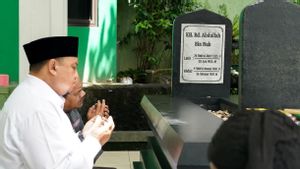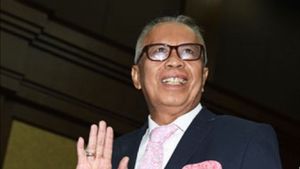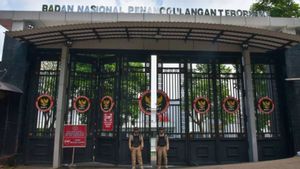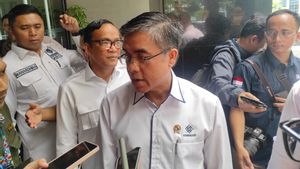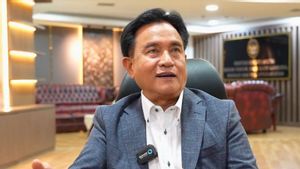JAKARTA - The Minister of Communications and Information Technology (Menkominfo) Johnny G Plate proposed that the 2024 General Election will be conducted online or by e-voting. Johnny made this suggestion during a working meeting with Commission I of the DPR on Tuesday, March 22.
Recently, the Minister of Communication and Information alluded to free and fair online elections through the e-voting system that has been implemented in Estonia. He then pushed for the 2024 general election in Indonesia to also use e-voting.
"Through free, fair, and secure online voting, as well as through an e-vote or internet voting system. Estonia has been doing it since 2005 and it already has digital voting systems at the city, state, and EU level that have been used by 46.7 percent of the population. So it's not new, including the KPU has been preparing for it for a long time," Johnny said in his statement, Thursday, March 24.
Johnny said the adoption of digital technology could be useful in the election process. According to him, voting digitally or online can realize an effective and efficient political contestation process.
"The adoption of digital technology in election activities has the benefit of realizing effectiveness and efficiency in the process of legitimate political contestation, both in the stages of voter identification, voter identity verification, voting, vote counting, to transmission and tabulation of election results," he said.
VOIR éGALEMENT:
Johnny said several countries have even started to do this, one of which is India. That's why, he said, Indonesia could start conducting studies related to remote voting.
Then, how will the DPR and KPU respond to the Minister of Communication and Informatics' proposal?
Members of Commission I DPR PKS Sukamta faction agreed with the proposal. According to him, e-voting can minimize the risk of fatalities for election officers as in the 2019 election.
"This is a good proposal. If the prerequisites are met, there will be extraordinary budget efficiency and great work effectiveness. Election officers' fatalities due to fatigue and others will be avoided," said Sukamta when contacted, Thursday, March 24.
Even so, the Deputy Chair of the PKS Faction warned that there were a number of main prerequisites that had to be prepared. In addition, he reminded about security issues from cyber attacks.
"The main prerequisites include the availability of a system with sufficient capacity so that it can be accessed and uploaded simultaneously throughout Indonesia, and no less important is security. Almost certainly the server will become the target of cyberattacks from various parties," he said.
Then, the member of the DPR for the Yogyakarta electoral district also reminded about the stability and transparency of the system. Don't let, he said, the server suddenly shuts down while the voting process is in progress.
"In addition, it is about the stability and transparency of the system and management so that it can be monitored by all parties. Don't let the server suddenly shut down for various reasons and suddenly turn on and the elections and calculations are complete. It could be a commotion if that happens," he said.
"Preparations must be very thorough because this involves the fate of all important public officials in the executive and legislative branches," he continued
Similarly, the Deputy Chairman of Commission II of the House of Representatives of the Republic of Indonesia from the PDIP Faction, Junimart Girsang, also had no problem with the proposal. Provided, he said, the General Election Commission (KPU) as the organizer was ready.
"We return to the readiness of the election organizers to implement the e-voting system. If the KPU is ready for that, why not," said Junimart to reporters, Thursday, March 24.
Junimart invited the KPU to present the proposal in a hearing (RDP) with Commission II. According to him, the Election Law can be revised if the e-voting model is agreed upon in a meeting.
"Please present it in the RDP or RAKER at Commission II of the DPR-RI which we plan to hold on April 11-12 2022. Yes, revisions can be made if the e-voting model is agreed upon and decided in the RDP or Working Meeting in Commission II," he said.
Furthermore, Junimart said that the digitization of elections must fulfill democratic values. "Digitalization or digital election technology must meet the values and conditions of democracy," he explained.
Previously, the General Elections Commission (KPU) had responded to Menkominfo's proposal. The KPU assesses that electronic voting (e-voting) has not become a priority in the 2024 General Election (Pemilu).
KPU member Hasyim Asyari revealed a number of reasons for the 2024 General Elections that will most likely still use the conventional voting system like the previous elections.
"If e-voting means directly (voting) online, it's still about 40 percent of districts that have not been connected to the internet, nor have electricity," said Hasyim, Tuesday, March 22.
Hasyim added, the e-voting mechanism can vary, judging from the practice in various countries. However, whatever the method, e-voting is claimed to depend on the level of public trust in a country.
Then, voice data security becomes a highly highlighted issue. Hasyim gave an example of how Germany, a country with advanced technology and good maturity of democracy, has finally returned to a conventional electoral system.
“The question is, who can track the server (which contains vote data), even though the election has a secret aspect. If later the data is questioned, lest it be shifted or best, that is what the judges of the Constitutional Court in Germany consider canceling (e-voting), returning to using manual ballots, paper, "he said.
According to Hasyim, Indonesian people are not classified as people with high political trust. He gave an illustration of how residents suspected the KPU in the 2017 DKI Regional Head Election (Pilkada), only because the laptop used by the KPU was a gift from the DKI Provincial Government whose governor, Basuki Tjahaja Purnama, participated in the contest.
"So the most important thing is political trust in the process," said Hasyim.
He considered, the conventional voting method is still the most appropriate choice at this time.
"Our ballot boxes are enveloped in ballots, the envelope is sealed, put in a box, the box is sealed, locked, some are using a tis cable, the mouth of the ballot box is sealed, then still escorted by the police or security forces," he concluded.
The English, Chinese, Japanese, Arabic, and French versions are automatically generated by the AI. So there may still be inaccuracies in translating, please always see Indonesian as our main language. (system supported by DigitalSiber.id)
